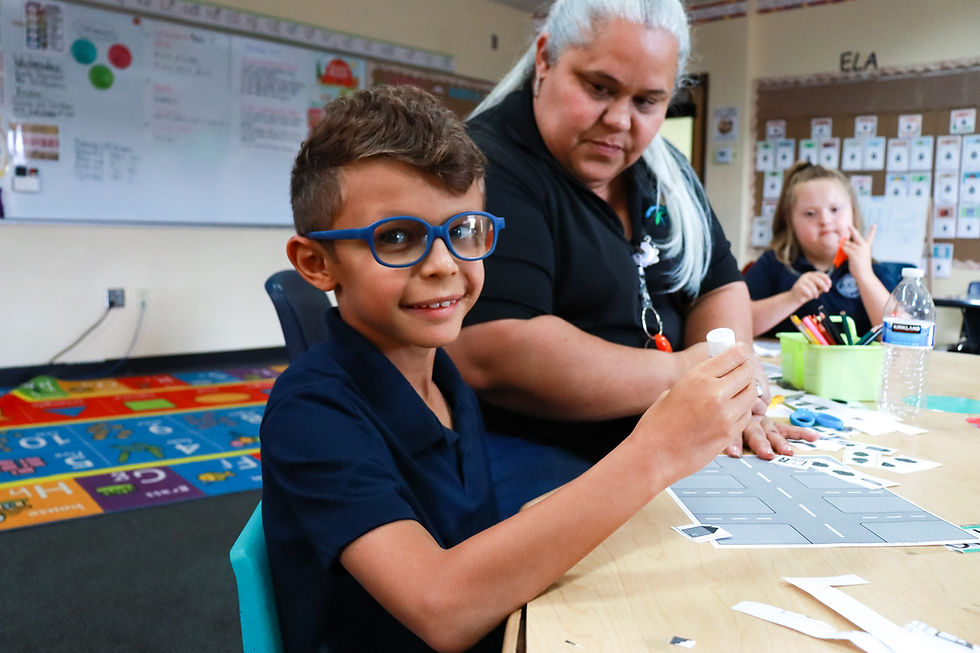Working Together for Student Success
- UCP Charter Schools

- Aug 27, 2025
- 2 min read
Written by: Anna O'Connor-Morin, Sr. Director of Education

The Best Ways to Collaborate with Your Child's Teachers - A Parent-Friendly Guide for All Learners
As a new school year begins, one of the most important steps you can take is building a strong partnership with your child’s teachers. Whether your child is in general education or receives additional support for unique abilities, consistent and positive collaboration between home and school makes a big difference. Here are some parent-friendly ways to foster great communication and teamwork with your child’s educators throughout the year.
1. Start With a Friendly Introduction
Teachers appreciate it when families reach out early to share about their child. A quick note, email, or in-person introduction can set the tone for a strong relationship.
Tip: Share a few key things—your child’s interests, learning style, any allergies or medical needs, and how they best communicate or respond to help. If your child has an IEP, 504 Plan, or behavior support plan, offer to share any strategies that have worked well in the past.
2. Communicate Regularly—Not Just When There's a Problem
Stay informed by checking in periodically. Teachers often send newsletters, emails, or updates through school apps. Respond when needed, and reach out with questions or to celebrate progress.
Tip: If your child is nonverbal, has communication needs, or just doesn’t love to talk about their day, ask the teacher about a home-school journal, communication folder, or daily check-in sheet.
3. Attend Meetings and Conferences With a Team Mindset
Whether it's a parent-teacher conference, IEP meeting, or informal chat, show up ready to listen, share, and problem-solve together. Come with questions, and remember: you're on the same team with the shared goal of helping your child thrive.
Tip: If you can’t attend in person, ask to join by phone or video. For students with unique needs, it can be helpful to ask for an agenda ahead of time so you can prepare.
4. Be Open About Challenges—and Celebrate Successes
Teachers value honest conversations. If your child is struggling with homework, behavior, or transitions, let the teacher know. And when something is going well, share that too!
Tip: A quick email saying, “Thank you for helping my child feel safe in your class,” goes a long way and encourages continued collaboration.
5. Partner on Goals and Support at Home
Learning doesn’t stop at school. Ask the teacher what you can reinforce at home—whether it’s reading 20 minutes a night, practicing social skills, or building independence. For students with IEP goals, ask how you can help with small steps at home that connect to those goals.
Tip: If your child uses visual supports, schedules, or behavior charts at school, see if similar tools can be used at home for consistency.
Your voice matters. Teachers want to know what makes your child special, what challenges them, and how to support their growth. When families and educators work together, students benefit—academically, emotionally, and socially. Let this school year be filled with partnership, progress, and positivity—for every child, every ability, and every family.




Comments